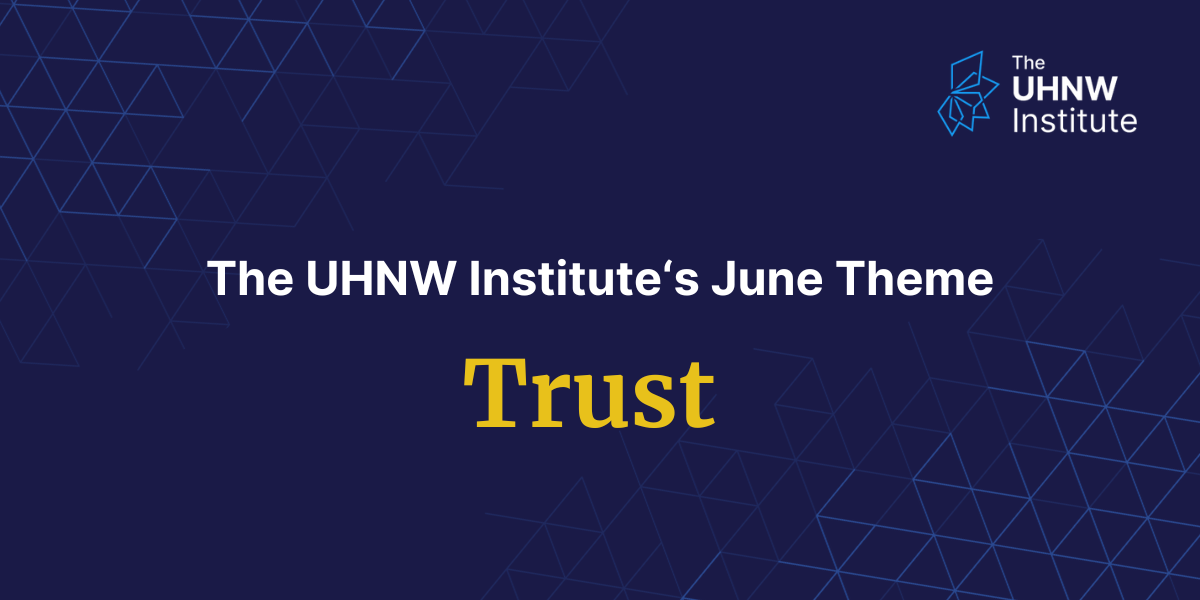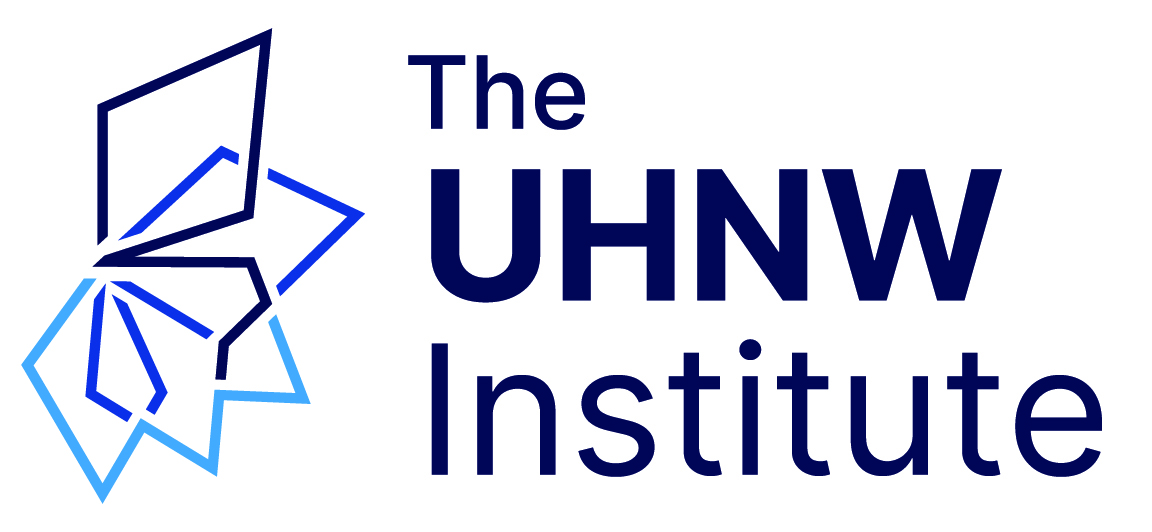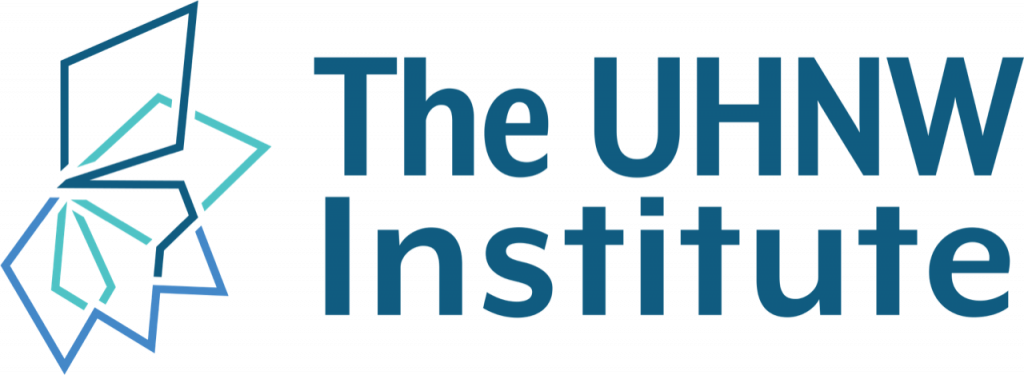
UHNW Institute June Theme: Trust
In the family wealth industry, communication is vital, yet terminology isn’t always well-defined or agreed upon. Some terms seem interchangeable or are used in different ways. As part of its mission to consider setting standards, The Institute is developing a glossary of terms and jargon that deserve clearer definitions. We have coined this Wikipedia-like set of definitions a Wealthesaurus.
We hope you will connect in the Community Forum and share your thoughts and recommendations as this project gets underway.
Speaking of words, this month we focus on a word that has many meanings in our line of work and yet is at the core of the work we do: TRUST.
We’re focused on both definitions:
TRUST: a firm belief in the reliability, truth, ability, or strength of someone or something,
and
TRUST: The legal arrangement whereby a person (a trustee) holds property as its nominal owner for the good of one or more beneficiaries. In a trust, the ownership of assets is given to a third party, called the trustee, while the beneficiary receives the benefits. The person who transfers the property into the trust is known as the grantor or settlor.
This month, watch for the Family Wealth Report Cybersecurity & AI Summit on June 4, where The UHNW Institute is sponsoring a session that explores deep fakes and how our ability to trust is being compromised by technology and AI. And don’t miss our Masterclass on Working with Families in Conflict on June 20 at 4 pm ET aimed at helping advisors develop practical skills for working with families in conflict. It is a cross-domain collaborative effort led by domain chairs Stacy Allred (Learning, Development and the Rising Generation), Arne Boudewyn (Family Dynamics) and Moira Somers (Family Advisory Relationships). Participants can anticipate gaining the following skills: learning to regulate their own responses to conflict and conflict avoidance; understanding how adaptations in personal communication, decision-making, and problem-solving styles can increase harmony; reducing conflict and strategies for creating the conditions for good conflict and its resolution.
We look forward to having you join us. In the meantime, please enjoy a sampling of resources that align with our topic of trust throughout the month of June. For the full June Resource Toolkit, click here.
PODCASTS
Keith Whitaker and Kim Kamin
Choosing Trustees with Care and Wisdom
In this episode of the Wealth of Wisdom podcast series, co-author Keith Whitaker interviews Kim Kamin about her chapter ‘Choosing Trustees with Care and Wisdom’ and the main purposes for using trusts. Kim’s chapter provides a comprehensive guide to understanding a trustee’s role and the proper tools to decide on one and common cautions that could arise in the process.
Tom McCullough and John A. Warnick
Expressing Purpose in Your Trusts
In this episode of the Wealth of Wisdom podcast series, co-editor Tom McCullough interviews John A. Warnick. Tom and John discuss his chapter, the practice of giving your trust a heart and soul that is a reflection of you and the benefits it will bring to your family.
ARTICLE
Drafting to Improve Well-being: Imbuing Trusts with Positivity, Meaning and Purpose
Richard S. Franklin | 2020
In this very comprehensive overview accompanying a presentation at the Purposeful Planning Institute, attorney Richard Franklin discusses the multiple factors that can support either a positive, life-affirming trust design or a negative, burdensome design. It offers sample trust language grantors can use to convey purpose and meaning to the document as well as recommendations for trustees to act in a positive capacity with beneficiaries. Its multiple appendices and references are also useful for readers to pursue further learning.
ARTICLE
Roy C. Ballentine, CFP® CHFC®, CLU® and James Grubman, Ph.D. | 2014
Mistakes in financial advising can have serious consequences for both clients and firms. Addressing these errors transparently and ethically, avoiding defensive reactions, and ensuring clear communication with clients are crucial. Learning from the healthcare industry, financial advisers should focus on sincere apologies, detailed explanations, and actionable plans to prevent future errors. Establishing a culture of honesty and continuous learning within the firm helps maintain trust and strengthens client relationships.
TOOLS
Beneficiary Thriving provides free resources to support a healthy trustscape, a term that includes a trust’s grantor (the creator of the trust), trustee (or trustees), and beneficiary (or beneficiaries). It makes these resources available on its website at www.beneficiarythriving.com and asks visitors to submit questions, comments and additional resources. An Introduction and Sample “Statements of Grantor Intent for Beneficiaries and Trustees” that include suggestions for personalizing the Statements are being provided, along with a sample “Letter of Wishes to Trustees”.

